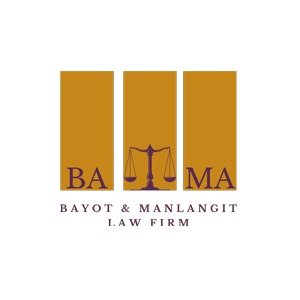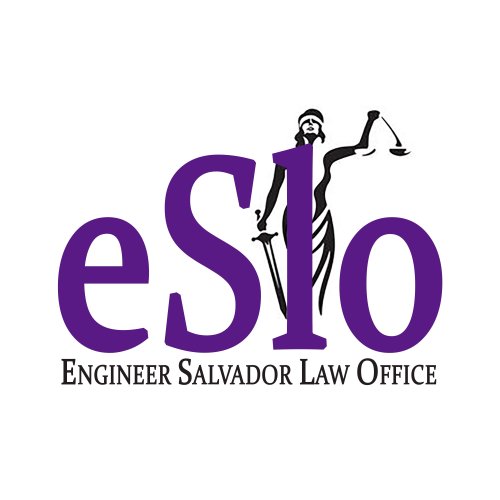Best Project Finance Lawyers in Cavite City
Share your needs with us, get contacted by law firms.
Free. Takes 2 min.
List of the best lawyers in Cavite City, Philippines
About Project Finance Law in Cavite City, Philippines
Project finance refers to the legal and financial structuring of large-scale projects using a combination of debt, equity, and other financial instruments. In Cavite City, project finance is commonly used for infrastructure projects such as roads, bridges, housing developments, utilities, energy facilities, and other public or private ventures. What makes project finance unique is that the project’s own cash flow is used as collateral for raising funds, rather than personal or corporate assets.
Project finance law in Cavite City typically involves complex agreements among multiple stakeholders, including government agencies, private investors, lenders, contractors, and service providers. The legal framework ensures that risk is allocated efficiently, contracts are enforceable, and regulatory requirements are met for the duration of a project.
Why You May Need a Lawyer
Engaging in project finance involves numerous legal challenges. Here are common scenarios in Cavite City where legal help is essential:
- Negotiating and drafting financing agreements with banks or other financial institutions
- Structuring partnerships or joint ventures for infrastructure or development projects
- Navigating regulatory and permit requirements from local government units
- Reviewing and preparing EPC (engineering, procurement, and construction) contracts
- Handling disputes among project stakeholders or between the local government and private entities
- Ensuring compliance with national and local investment laws, including those related to foreign ownership
- Addressing environmental legal compliance for projects that may impact local resources
- Advising on security arrangements, collateral, and insurance for lenders and project sponsors
- Assisting with land acquisition and real property concerns for project sites
Project finance involves high-value transactions and multiple risks. A lawyer specializing in project finance law can help identify and mitigate risks, ensure all agreements are enforceable, and that your interests are protected throughout the project’s lifecycle.
Local Laws Overview
Project finance in Cavite City is governed by a combination of national laws and local ordinances. Some of the most relevant legal frameworks include:
- Public-Private Partnership (PPP) Law - Also known as the Build-Operate-Transfer (BOT) Law (Republic Act No. 6957 as amended by RA 7718), which provides the legal basis for private sector participation in infrastructure projects
- Local Government Code of 1991 (Republic Act No. 7160) - Grants Local Government Units (LGUs) the power to enter into joint ventures, issue permits, and regulate local projects
- Secured Transactions Law - Outlines the use of project assets as collateral for loans
- Foreign Investment Act of 1991 (RA 7042) - Regulates foreign investment in project finance structures, with certain restrictions
- Philippine Environmental Laws - Includes the Environmental Impact Statement (EIS) System (Presidential Decree No. 1586), which may apply to large infrastructure projects
- Real Estate Laws and Land Titling Regulations - Relevant for land acquisition and development projects
Cavite City’s local government can impose additional requirements for project registration, permits, fees, and taxes. Understanding both national and local regulatory frameworks is essential to avoid delays or legal obstacles during project execution.
Frequently Asked Questions
What is project finance and how does it differ from traditional financing?
Project finance is a funding method where loans and investments are repaid mainly from the revenues of the project itself, without recourse to the sponsors’ personal or corporate assets. Traditional financing, on the other hand, relies on the borrowers’ overall creditworthiness and assets.
Who are the key players in a project finance transaction?
Typical participants include project sponsors, lenders, contractors, government agencies, legal and financial advisors, and insurance providers.
Are foreign investors allowed to participate in project finance in Cavite City?
Yes, foreign investors can participate, but they must comply with the Foreign Investment Act and other relevant laws which may set ownership limits especially for certain sectors.
What permits are required for a project financed in Cavite City?
Permits may include business permits, environmental clearances, building permits, land use approvals, and sector-specific regulatory permits, depending on the project’s nature and location.
How are risks allocated in a project finance transaction?
Risks are usually allocated through detailed contracts, with construction, financial, operational, and regulatory risks assigned to the parties best able to manage them.
What happens if the project fails to generate expected revenue?
If revenue projections fall short, lenders may have limited or no recourse to the sponsors’ assets. This is why thorough risk assessment and contingency planning are crucial.
What types of projects commonly use project finance in Cavite City?
Infrastructure projects such as toll roads, bridges, power plants, water supply systems, and large property developments typically use this structure.
Is land ownership a requirement for project sponsors?
Project sponsors generally need to secure rights to use or own the land where the project is located, and these must be properly documented to satisfy lenders and comply with local laws.
Can local government units (LGUs) in Cavite City participate in project finance arrangements?
Yes, LGUs can partner with private entities under the Build-Operate-Transfer framework or through joint ventures, provided they follow legal processes.
How long does it take to complete the legal aspect of a project finance deal?
The timeline can vary based on the project’s complexity, but typically ranges from several months to over a year, considering due diligence, negotiations, and permitting.
Additional Resources
For more information and support on project finance in Cavite City, you may consult the following:
- National Economic and Development Authority (NEDA) - PPP Center
- City Government of Cavite - Business Permits and Licensing Office
- Department of Trade and Industry (DTI) - Cavite Provincial Office
- Philippine Securities and Exchange Commission (SEC)
- Department of Environment and Natural Resources (DENR) - For environmental permits
- Integrated Bar of the Philippines (IBP) - Cavite Chapter
These organizations provide guidance, resources, and sometimes direct assistance for those seeking to participate in project finance.
Next Steps
If you are considering entering into a project finance agreement in Cavite City, or if you are facing a legal issue related to project finance, consider the following steps:
- Identify and define your project scope, stakeholders, and funding needs
- Gather all necessary documents including land titles, contracts, and company registrations
- Consult with a lawyer who specializes in project finance or infrastructure law
- Prepare for negotiations by understanding your legal rights and obligations
- Apply for required permits and clearances before commencing project activities
- Establish clear contracts with all participating parties, reviewed by your lawyer
- Monitor compliance with legal and regulatory requirements throughout the project
Legal guidance plays a critical role in the success of any project finance transaction. An experienced project finance lawyer in Cavite City can help you navigate potential obstacles, protect your investment, and ensure the smooth implementation of your project.
Lawzana helps you find the best lawyers and law firms in Cavite City through a curated and pre-screened list of qualified legal professionals. Our platform offers rankings and detailed profiles of attorneys and law firms, allowing you to compare based on practice areas, including Project Finance, experience, and client feedback.
Each profile includes a description of the firm's areas of practice, client reviews, team members and partners, year of establishment, spoken languages, office locations, contact information, social media presence, and any published articles or resources. Most firms on our platform speak English and are experienced in both local and international legal matters.
Get a quote from top-rated law firms in Cavite City, Philippines — quickly, securely, and without unnecessary hassle.
Disclaimer:
The information provided on this page is for general informational purposes only and does not constitute legal advice. While we strive to ensure the accuracy and relevance of the content, legal information may change over time, and interpretations of the law can vary. You should always consult with a qualified legal professional for advice specific to your situation.
We disclaim all liability for actions taken or not taken based on the content of this page. If you believe any information is incorrect or outdated, please contact us, and we will review and update it where appropriate.











